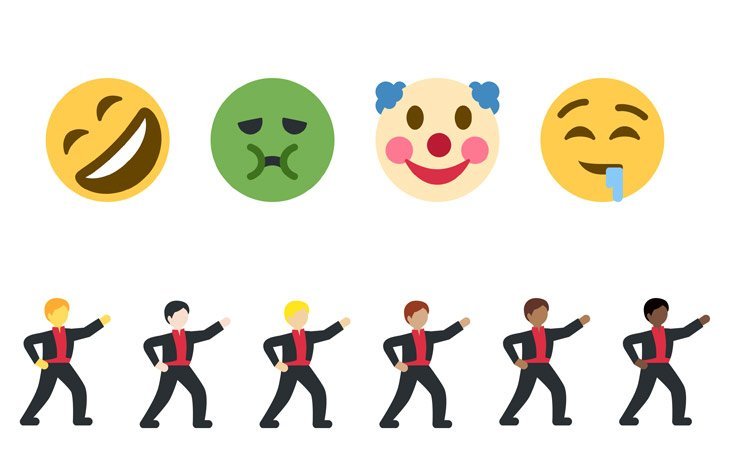Millions of eyes are glued to TikTok as conservative users flood the app with urgent videos about the rapture, claiming the end-times event could strike on September 23 or 24. This frenzy stems from a pastor’s bold prophecy, sparking panic, advice, and even life-altering decisions. But what’s fueling this viral storm, and is there any truth to it? Dive in to uncover the facts behind the hype.
The Spark Behind the TikTok Rapture Frenzy
A wave of videos from conservative TikTok users has taken over feeds, with people sharing tips on how to prepare for the rapture. These clips warn that true believers will soon vanish into the sky, leaving others to face chaos on Earth. The buzz kicked off after South African pastor Joshua Mhlakela posted a YouTube video three months ago, predicting the event for September 23 or 24, 2025. That video has racked up over 560,000 views, inspiring countless remixes and countdowns on TikTok.
Pastor Mhlakela claims God revealed the exact dates to him in a vision. This message spread like wildfire, especially among evangelical Christians who tie it to biblical end-times ideas. Users are quitting jobs, selling cars, and urging loved ones to repent now. One popular account with hundreds of thousands of followers posted a tearful video begging a friend to get right with God before it’s too late.
The timing aligns with Rosh Hashanah, the Jewish New Year, which some see as a sign adding weight to the prophecy. Yet, experts point out that date-specific predictions like this have failed many times before.

What Exactly Is the Rapture and Who Believes It?
The rapture is a belief held by some Christians that Jesus will suddenly take true followers to heaven, sparing them from earthly tribulations. It’s not in the Bible by name, but supporters draw from verses like those in Thessalonians, describing believers meeting the Lord in the air.
Not every Christian buys into it. Mainstream denominations often skip this teaching, viewing it as a modern interpretation from the 1800s. Still, it’s popular among evangelicals, especially in the U.S.
According to a 2022 Pew Research Center survey, about 47 percent of U.S. Christians think we live in the end times. That’s nearly half, showing these ideas aren’t fringe. The same study found 58 percent of all Americans reject end-times notions outright.
Believers warn of a seven-year tribulation period after the rapture, filled with plagues, wars, and disasters. Non-believers, they say, will face the worst times in human history.
- True believers ascend to heaven instantly.
- Left-behind people endure global chaos.
- Jesus returns after the tribulation to set up his kingdom.
This framework comes from books like the “Left Behind” series, which sold millions and even became a movie with Nicolas Cage.
Why Now? Links to Real-World Events and History
Predictions aren’t new, but current events are supercharging this one. Israel’s ongoing war in Gaza has some seeing biblical fulfillment, echoing ideas from books like Hal Lindsey’s “The Late Great Planet Earth” from the 1970s. Lindsey linked end times to conflicts in the Middle East, claiming they’d lead to Armageddon.
Social media amplifies these fears, turning personal beliefs into global trends. TikTok’s algorithm pushes emotional content, so videos of people panicking or preparing spread fast. Some users report dreams and visions, adding a personal touch that draws viewers in.
History shows failed prophecies galore. From the Millerites in the 1840s waiting for Jesus, to modern ones tied to Y2K or 2012 Mayan calendars, none panned out. Yet, each cycle brings fresh believers, often young ones hooked via apps like TikTok.
Experts like clinical social worker Josie McSkimming note that growing up with these teachings can cause deep stress, even for those who’ve left the faith. She sees clients distressed by family pushing end-times talk, especially amid wars and climate worries.
Pew’s data also ties beliefs to views on issues like climate change. End-times believers are less likely to see it as a big problem, perhaps thinking the world won’t last long anyway.
The Impact on Lives and Broader Society
This rapture hype isn’t just online chatter; it’s changing real lives. Reports say some folks are making rash choices, like quitting jobs or selling possessions, based on the September dates. That’s risky, as past panics have left people broke and embarrassed when nothing happens.
Mental health pros warn of the toll, with increased anxiety and hypervigilance. For young TikTok users, the mix of faith, fear, and viral trends can feel overwhelming. It’s a reminder of how social media blends belief with entertainment, sometimes blurring lines.
On a bigger scale, these ideas shape politics and culture. In the U.S., evangelical views influence policy, from foreign aid to Israel to environmental rules. If nearly half of Christians expect the end soon, it could sway votes and priorities.
| Belief Group | Percentage Who See End Times Now | View on Climate Change as Serious |
|---|---|---|
| Evangelical Protestants | 63% | 45% |
| Mainline Protestants | 36% | 58% |
| Catholics | 28% | 65% |
| All U.S. Adults | 39% (Christians only: 47%) | 62% |
This table, based on 2022 Pew data, highlights how beliefs vary and link to real issues.
Communities are responding with humor too. Parody videos mock the predictions, predicting embarrassment come Wednesday.
As TikTok lights up with rapture warnings, it’s clear this mix of faith, prophecy, and social media has gripped many, especially conservatives tying it to world events. From a pastor’s vision to viral videos urging repentance, the story shows how old beliefs get new life online. But with a track record of failed dates, skeptics urge caution. What do you think—could the end be near, or is this just another false alarm? Share your thoughts below and spread the word on social media. This topic is trending big time with #RaptureTok on platforms like X and TikTok, so tag your posts with #RaptureTok and share this article to join the conversation.









Leave a Comment